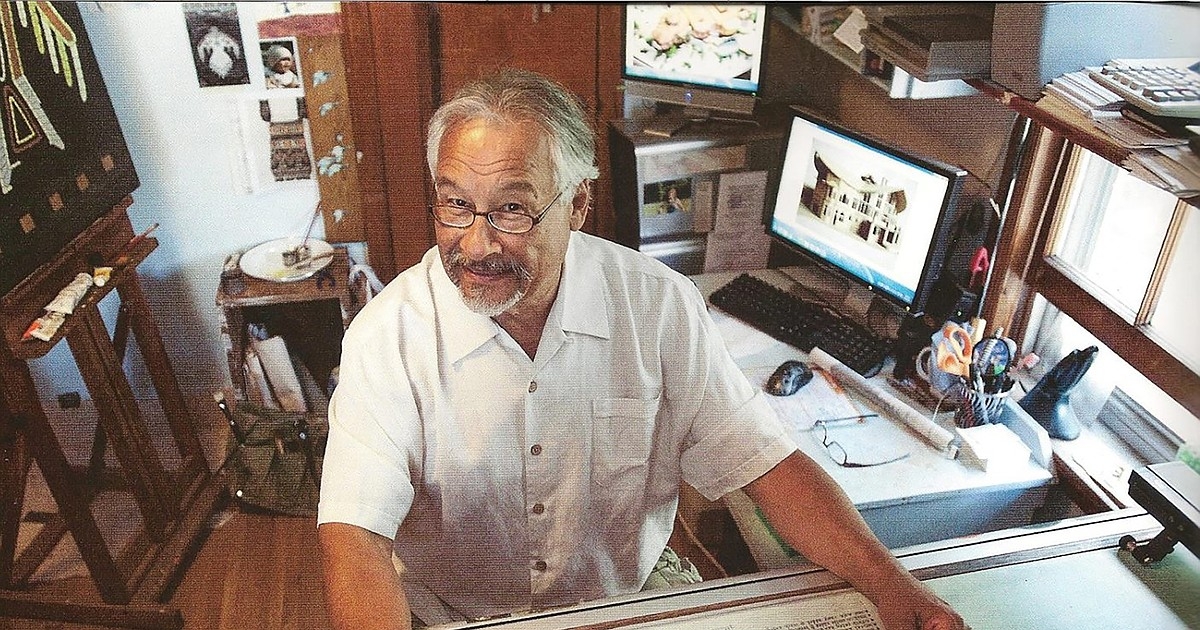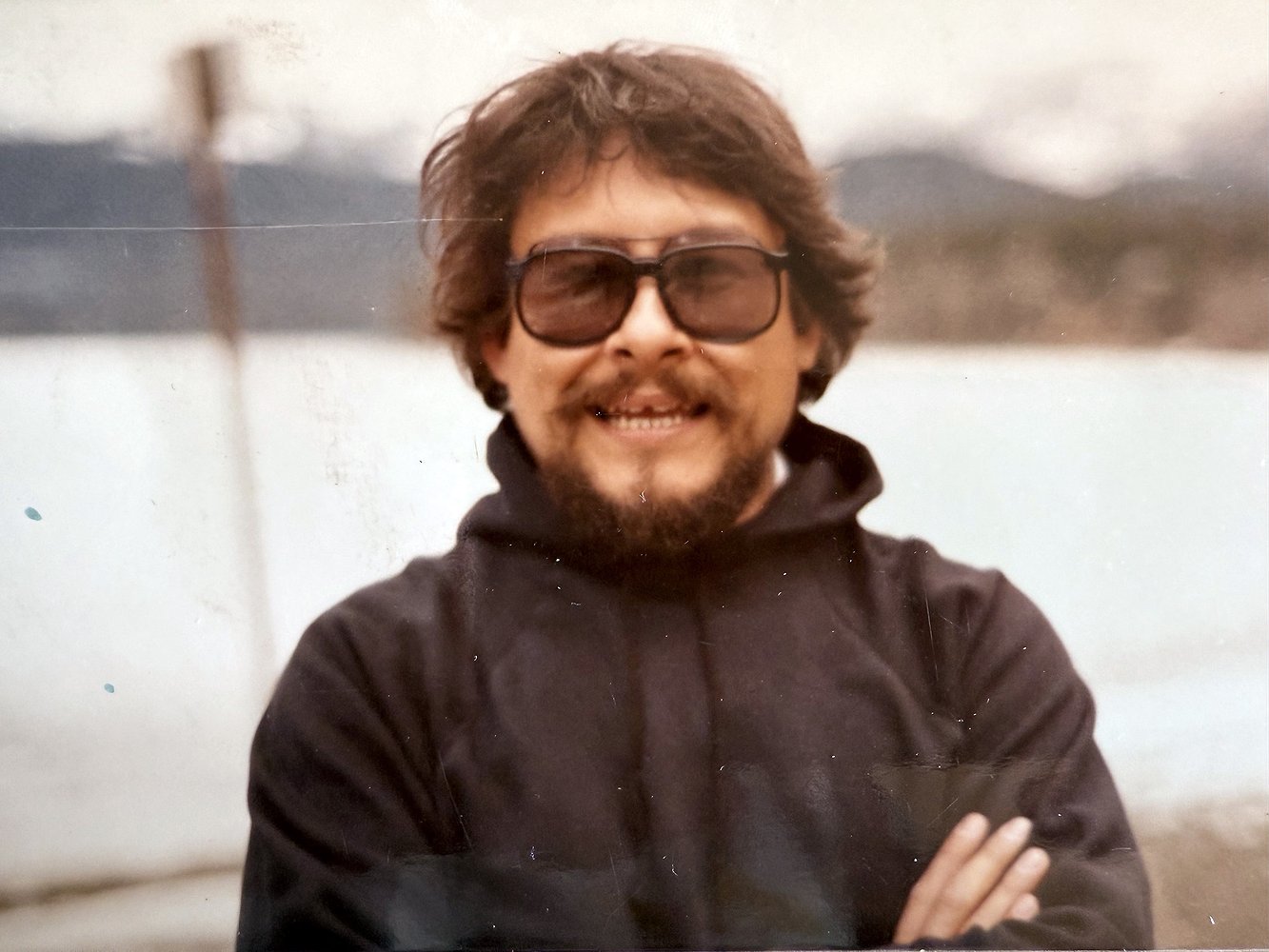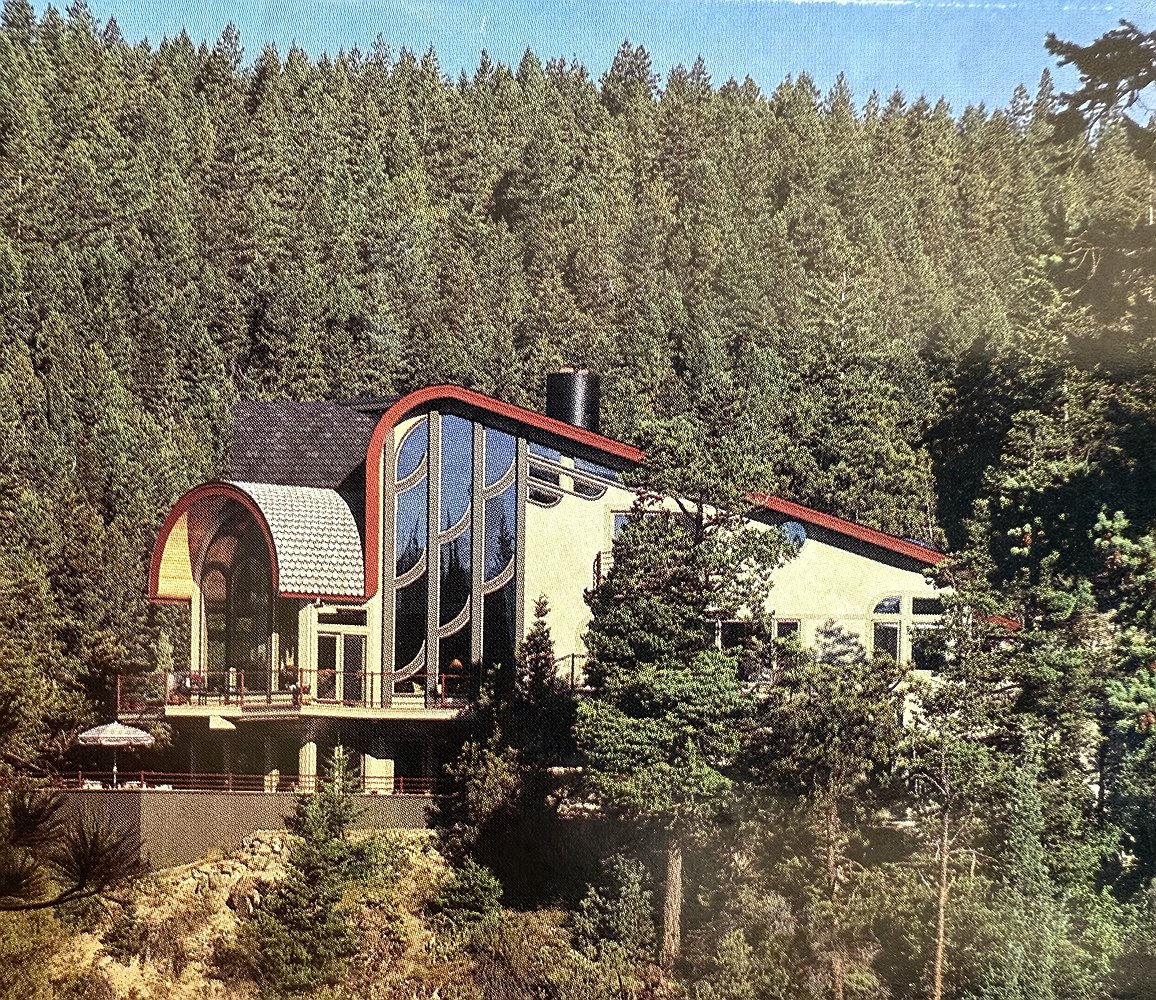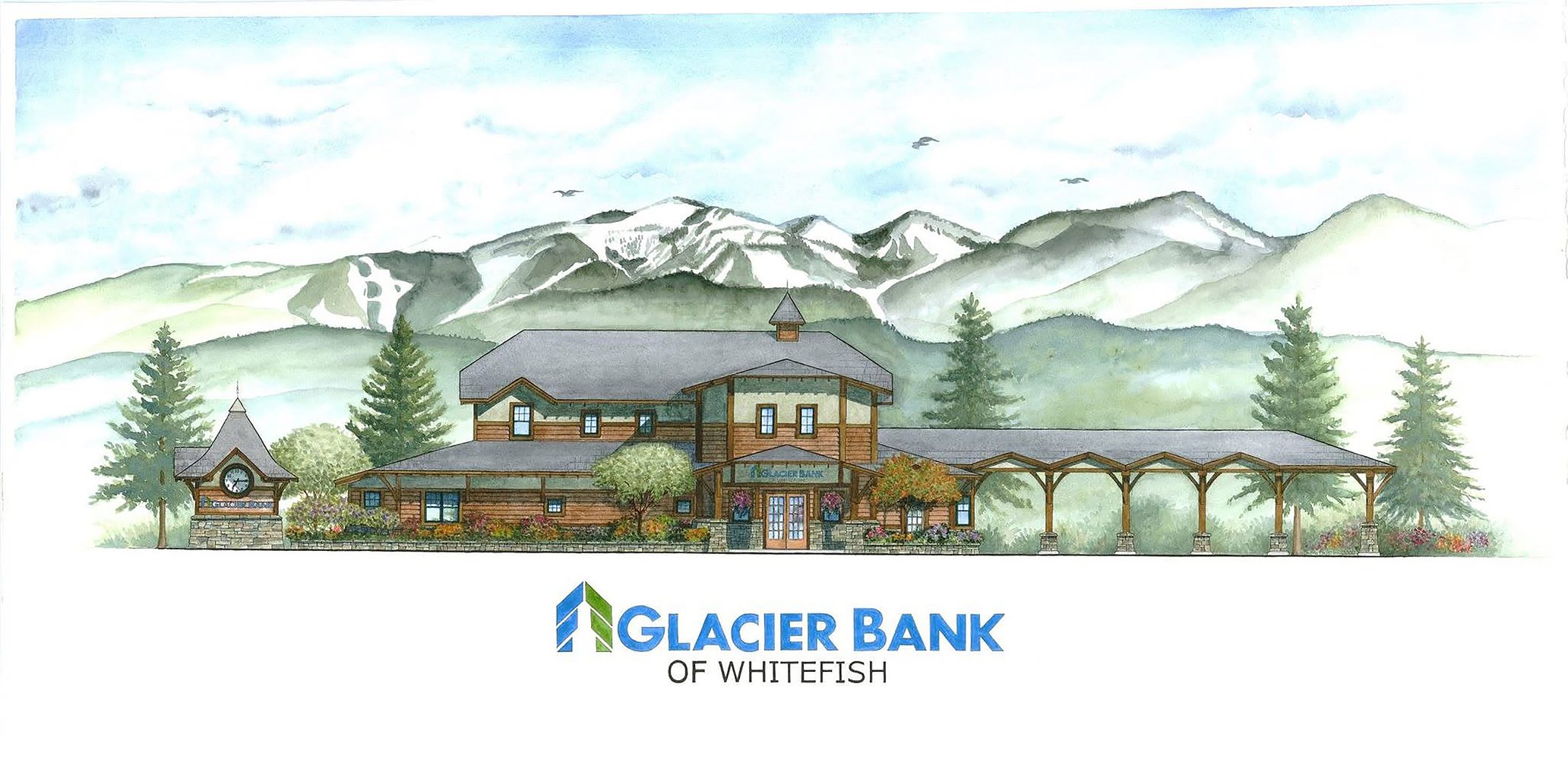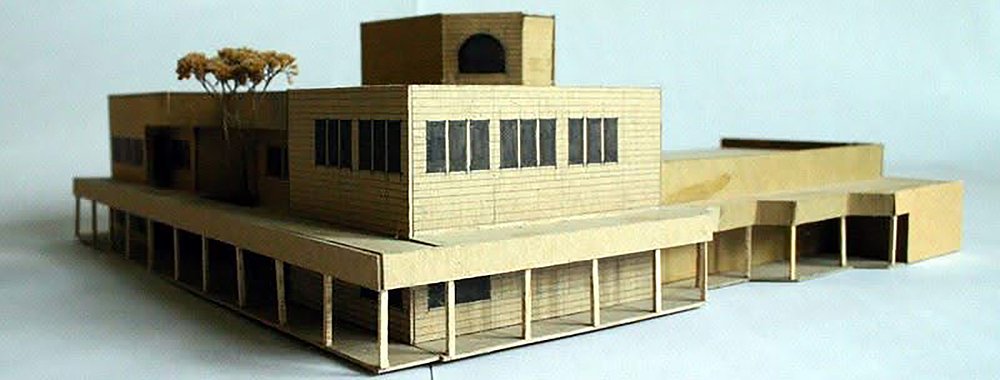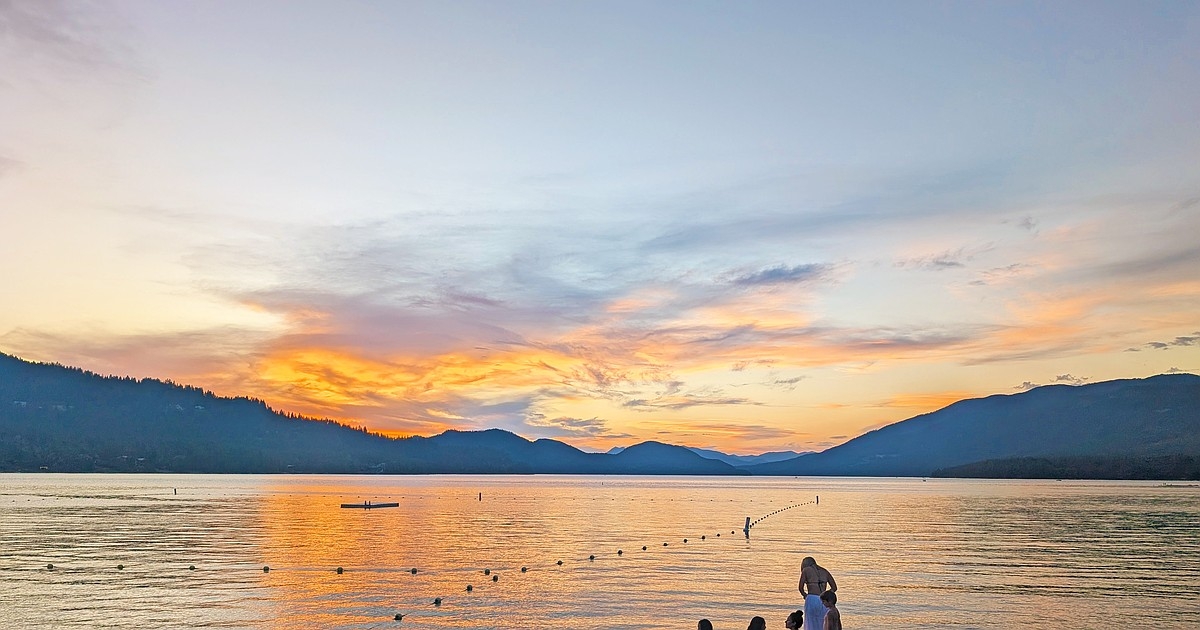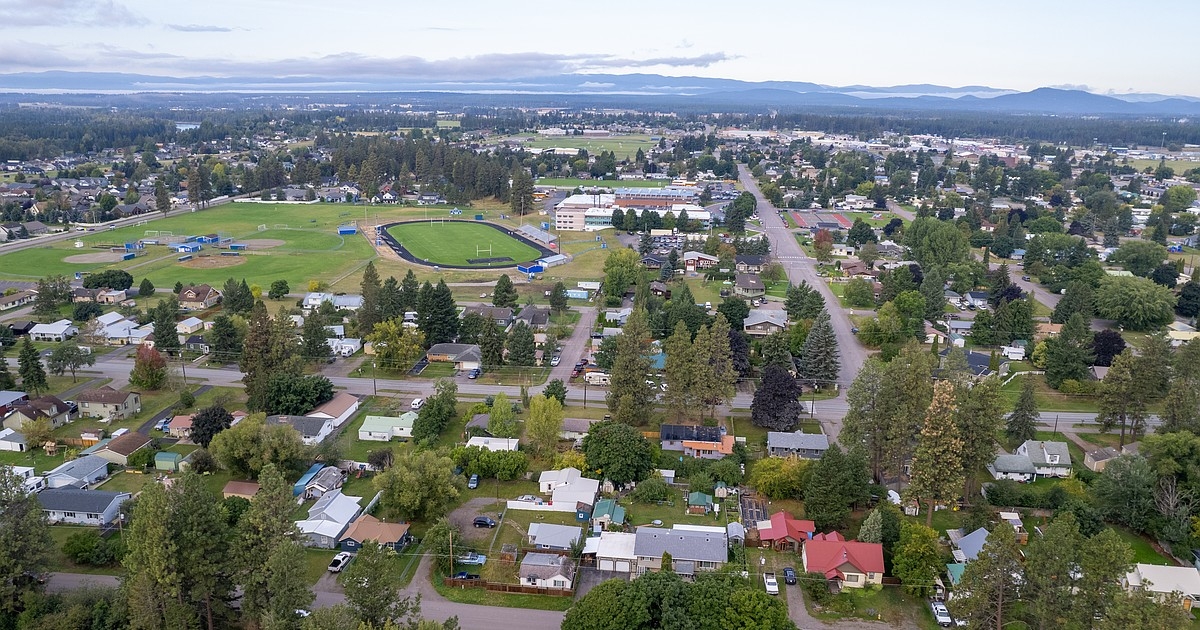Description
For more than 50 years, Richard Wyman Smith was a quiet but unmistakable presence in Whitefish. He approached the world with a generous spirit and an open mind. He was non-judgmental and had a quick smile that reminded people to enjoy some levity.
Smith’s longtime friend, Colin Sellwood, described him as truly unique and said Smith was bright, energetic, fun and had a calmness about him.
“When one walked with Richard, he would stop every two minutes to share something important,” Sellwood recalled. “Rather than being like the rest of us – who’d walk and talk at the same time – Richard would actually stop and just expound on whatever he wanted to expound about and then off we could go again.
“He wanted to make sure that whoever he was with also got their point across,” he added.
The locally renowned designer and artist died in July at age 80.
Born in Missoula in 1945, Smith grew up in Dixon on the Flathead Reservation with his four siblings, and later in West Glacier where his father worked on the Going-to-the-Sun Road.
He graduated from Columbia Falls High School in 1963. A member of the White Earth band of the Chippewa Tribe, Smith became the first American Indian to graduate from the School of Architecture at Montana State University in 1969.
Smith was a visionary architect who described his architectural sensibility as a blending of nature, man-made elements and the desires of the client.
His career began in New York, but Montana pulled him back home in 1974, where he continued his career drawing and designing built spaces for five decades.
His designs were inspired by the land and blended organic forms with technical space. He believed his affinity for tall lines and angles came from a spiritual place – the earth's mountains and headwaters.
Smith designed housing for many reservations, including the White Earth Chippewa, the Blackfeet, the Northern Cheyenne, the Wind River Arapahoe and the Fort Hall Shoshone.
In a 1990 interview with Ron Ridenour, Smith expressed disappointment with the fact that he wasn’t allowed to incorporate Native art, color and tradition into the housing projects. He said while there had been improvements to Native housing, they were still, typically, 900-square foot blue and purple boxes.
"The shingles are always lightweight, and they blow away in the wind,” he noted. “It's cheap and nobody can respect living that way."
He said inattention to quality wasn't limited to reservations but ran throughout the country, from ghettos in cities, to shacks on hillsides. He felt there could be a patriotism that has to do with the earth and with challenging the system. Making things better for people was always his main concern.
Many of the ideas he championed decades ago still resonate today. He wanted to see the Flathead Valley preserved for agricultural uses. Rather than continuing to sprawl, he wanted to see growth concentrated within the established communities. He said the 35-foot height requirement on buildings in Whitefish would eventually have to change to facilitate the growth that would inevitably occur.
His best-known home design is the Soaring Osprey House on Flathead Lake. The roofline of the house resembles an osprey as it takes flight.
He also designed the Glacier Bank building on U.S. 93 in Whitefish, and the building at East Third Street and Spokane Avenue that is home to Third Street Market and Bookworks.
RICHARD’S CREATIVITY reached beyond architecture. He drew a comic strip called Johnny Bearpaws in honor of his late older brother, Johnny Smith. It told the story of a man returning home to the reservation after a 24-year career in the U.S. Navy. The comic was a fictionalized account of his own family’s history, and offered the humor, beauty, and challenges of historic and modern reservation life.
Smith and his wife, Lorinda, operated Red Horse Art and Architecture. Lorinda is a renowned painter in the valley. Inspired by her work, Smith began a series of thunderbirds paintings which were previously on display at Bonsai Brewing Project, a local establishment founded by his daughter, Keela, and son-in-law, Graham.
Smith also co-hosted a weekly podcast, “Birds on a Wire,” for Whitefish Community Radio. The show was recorded in the back of Coffee Traders, and featured guests, thoughtful questions and interesting conversations. The show’s title was inspired by Smith’s frequent musings of what birds sitting on telephone wires were saying to one another.
Perhaps his best-known creative foray was that as a restaurateur. From 1977-1982, Smith, David Bristol, and the Kiet Lam family owned and operated the Orient Express, located on Bowdish Road, between Kalispell and Whitefish.
Smith designed the restaurant to look like a railroad station and loading dock, flanked by two antique railroad dining cars. It was the happening spot in the valley with live music, bar and restaurant serving Vietnamese fusion style dishes with warm, eclectic charm.
“Although he was a busy person, he never seemed to be in a hurry. Never seemed to be under stress. Never seemed to be rushed,” Sellwood said of his friend. “There was a grand calmness about him, and I wish that more of us had that.
“We certainly could take a lesson from Richard,” he added.
Smith's life brought people together by making space - through his designs, with conversations, and by sharing meals. As Smith would say, “The journey is the gathering.”
A gathering for Smith’s life and death will be on Saturday, Sept. 20, in Whitefish’s Depot Park, from 1-4 p.m. Bring stories, laughs, and cookies, if inclined.
Smith’s wife, Lorinda, and his children, Jason, Sarah, Keela and Nishka thank his community of loved ones for celebrating his life with us.
News Source : https://whitefishpilot.com/news/2025/sep/17/richard-wyman-smith-a-life-of-making-space/
Other Related News
09/17/2025
The Whitefish Lake Institute an organization that serves as the voice of Whitefish Lake i...
09/17/2025
Flathead County Library has new programming for all ages this fallThe library continues t...
09/17/2025
A Libby man accused of beating his infant son last year is facing several years in prison...
09/17/2025
The Columbia Falls City Council earlier this month adopted its fiscal year 2026 budget wh...
09/17/2025


